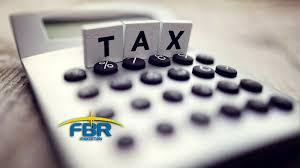The macroeconomic and fiscal framework that Pakistan agreed upon with the International Monetary Fund (IMF) has proven unsustainable, prompting Islamabad to request a revision from the IMF staff ahead of the first review next month under the $7 billion Extended Fund Facility (EFF).
Three of the four primary indicators—economic growth, inflation, and manufacturing—that underpin Pakistan’s tax revenue projections have diverged from their expected trajectories in the first quarter of the fiscal year.
The Deputy Prime Minister, Ishaq Dar, has hinted that the government might need to renegotiate the fiscal framework of the deal or continue imposing stringent tax measures that could stifle economic growth.
The IMF’s arrangement was predicated on achieving a nearly Rs13 trillion tax target, supported by assumptions about inflation, large-scale manufacturing, and import growth. However, actual figures have fallen short.
This shift has resulted in an Rs90 billion tax shortfall for the Federal Board of Revenue (FBR) in the first quarter alone, with an internal assessment indicating that this shortfall could widen to between Rs350 billion and Rs400 billion by December, with an additional Rs100-200 billion shortfall in non-tax revenue.
The revenue assumptions included Rs1,190 billion expected from increased tax rates, Rs320 billion from enforcement measures—including Rs50 billion from the retailers’ scheme—and Rs2,047 billion anticipated from revenues tied to Sindh, imports, and Large-Scale Manufacturing (LSM) growth.
Inflation, projected at 12.9%, has averaged 9.2% in the first quarter, with a forecast of dropping further to between 5.5% and 6.5% by November.
Import growth, expected at 17%, achieved only an 8% increase, influencing the tax revenue from customs duties. Large-scale manufacturing showed a minimal growth of 1.3%, far below the expected 3.5%.
These unfolding economic challenges underscore the complex dynamics of implementing the IMF’s stipulations and raise questions about the sustainability of the fiscal targets set under the current agreement.
























